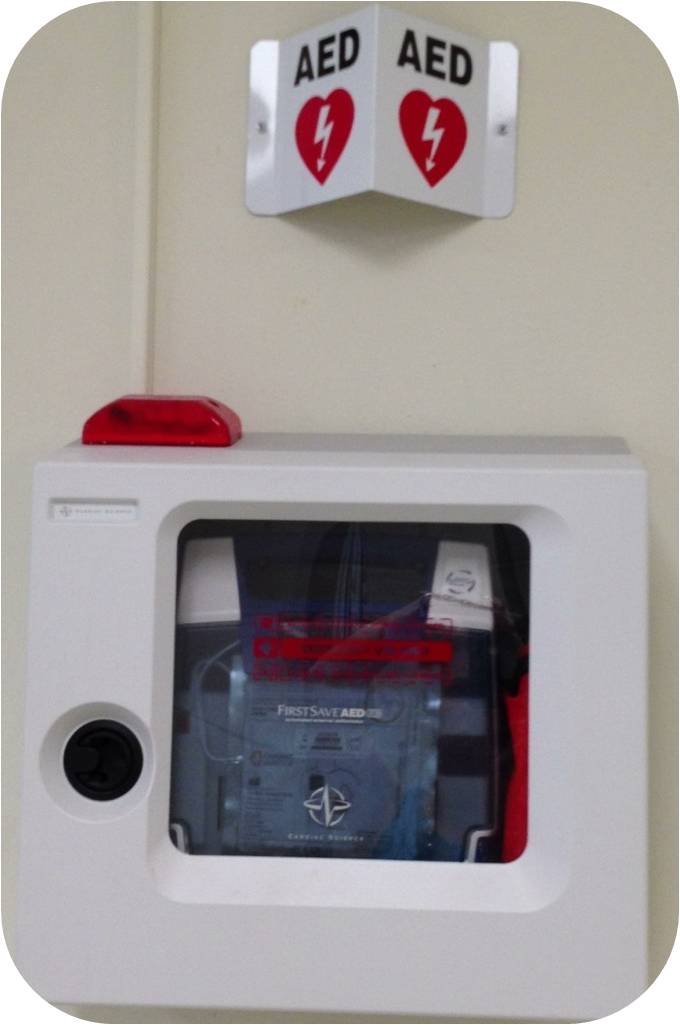Medical Emergency
If you experience a medical emergency
(i.e: heart attacks, loss of consciousness, large loss of blood, serious accidents,or seizures):
- Have someone call 911 immediately. Relay information such as building, room, address,
and the nature of the
emergency. - Search the area for any hazards that may have caused the emergency or could be hazardous
to first responders.
This could include downed power lines, chemicals, or motor vehicle traffic. - First aid or CPR should be given if a trained person is available. This may include
using an Automated External
Defibrillator (AED). - Send someone to wait outside the building to escort emergency medical personnel to the scene.
 Automated External Defibrillators (AED)
Automated External Defibrillators (AED)
These devices are deployed in many buildings across campus and in ETSU Public Safety vehicles. AED locations are listed on all outside building doors. They are easy to use, although training in CPR/AED is strongly recommended. In the event of a medical emergency:
- Call 911.
- Render first aid or CPR. Only attempt to help someone to the extent that you are comfortable or trained.
- Locate AEDs in areas you frequent.
- ETSU public safety vehicles carry AEDs and are likely to be the first responder on the scene.
- Send someone to wait outside the building to escort emergency medical personnel to
the scene.
The ETSU Office of Environmental Health and Safety offers free CPR and First Aid classes
to ETSU employees.
For more information, contact EH&S at:
PO Box 70653
Johnson City, TN 37614-1266
Phone: 423-439-7743S
Avoid heat related medical emergencies by:
Avoiding extensive sun exposure and strenuous activities, drink plenty of water,
and wear light colored, loose clothing.
Heat Exhaustion:
Symptoms are heavy sweating; weakness; cold, pale and clammy skin; weak pulse; fainting; vomiting.
- Lie the victim down in a cool, shady place.
- Loosen clothing.
- Apply cool, wet cloths and fan the victim.
- Move to an air conditioned place if possible.
- Seek medical follow up. If vomiting occurs, call 911.
Heat Stroke:
Symptoms are high body temperature; red, hot, and dry skin; rapid, strong pulse; possibly unconsciousness.
- Call 911 Heat stroke is a severe medical emergency and can be fatal.
- While waiting:
- Carefully move the victim down in a cool, shady place.
- Try a cool bath or sponging to lower body temperature.
- DO NOT give fluids.